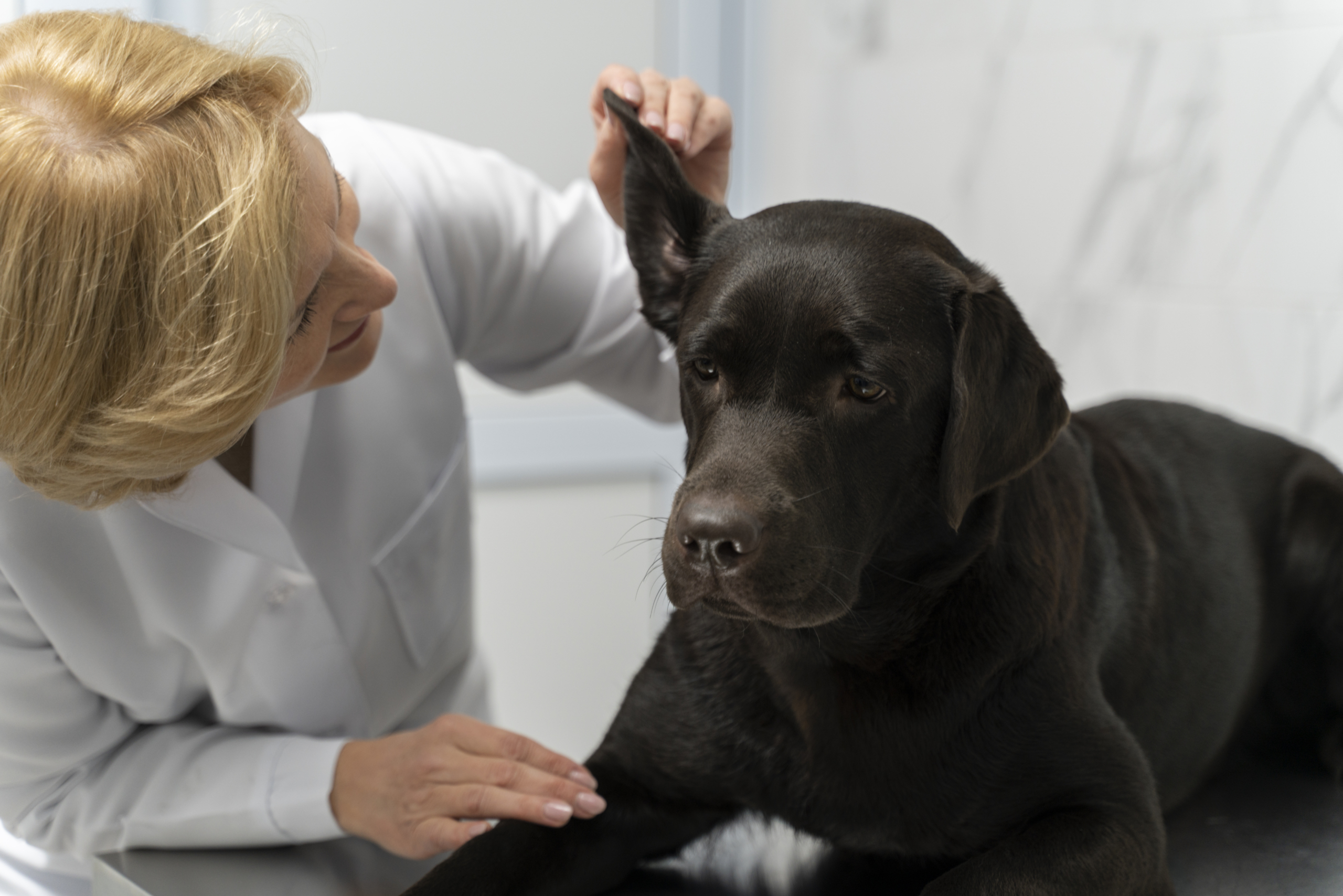501Views

Labrador Ear Infections Causes and solutions
If you’re a proud owner of a Labrador, you may have faced the common issue of **Labrador ear infections**. These infections can be a nuisance for both you and your furry friend. In this article, we’ll explore the causes, symptoms, and preventive measures to keep your Labrador’s ears healthy.
What Are Ear Infections?
Ear infections occur when bacteria, yeast, or parasites invade the ear canal. This common problem is rarely severe, but it can cause your pup discomfort if left untreated. Understanding the basics will help you recognize the signs early.
Common Causes
Several factors lead to **Labrador ear infections**. Here are some of the primary causes:
1. Moisture: Labs love to swim, and water can get trapped in their ears.
2. Allergies: Allergic reactions to food or environmental factors can lead to inflammation.
3. Ear Anatomy: Labradors have long, floppy ears that prevent proper air circulation.
4. Parasites: Ear mites are a common issue that affects many dogs, especially puppies.
Each of these factors can create a prime environment for infections.
Symptoms to Watch For
Being aware of the symptoms is crucial for prompt treatment. Early intervention can prevent further complications. Look for these signs:
– Constant Scratching: If your Labrador is frequently scratching their ears, it could be a sign of irritation.
– Head Tilting: If your dog tilts their head to one side, it may indicate a problem.
– Bad Odor: An unusual smell coming from the ears often suggests an infection.
– Discharge: Watch for excessive wax, pus, or blood coming from your dog’s ear.
Diagnosing Ear Infections
If you notice any of the symptoms mentioned above, consult your veterinarian. They can perform a thorough examination and may conduct the following tests:
– Ear Swab: A sample is taken to identify bacteria or yeast.
– Culture: This helps determine the type of infection for targeted treatment.
Quick diagnosis is key in addressing Labrador ear infections effectively.
Treatment Options
Treatment for ear infections typically involves:
– Cleaning:Your vet will clean your dog’s ears to remove debris.
– Medications:Antifungal or antibacterial drops may be needed.
– Managing Allergies: If allergies are the root cause, your vet might suggest changes in diet or environment.
Always follow your veterinarian’s advice, as treating ear infections requires precision.
Preventing Ear Infections
Preventing ear infections is much easier than treating them. Here are a few simple tips to keep your Lab’s ears healthy:
– Keep Ears Dry: Dry your dog’s ears after swimming or bathing.
– Regular Cleaning:Clean your dog’s ears weekly with a vet-recommended solution.
– Watch for Allergies: Be aware of potential allergens in their food or environment.
– Vet Checkups: Regular vet visits help catch issues before they become major problems.
By implementing these tips, you can drastically reduce the chances of Labrador ear infections.
Home Remedies: What Works?
While you may be tempted to try home remedies, it’s essential to be cautious. Some popular options include:
– Apple Cider Vinegar: Mix equal parts of water and apple cider vinegar. This solution can help restore pH balance.
– Olive Oil:A few drops can soothe the skin, but avoid using it if your dog has a fungal infection.
– Coconut Oil: Known for its antibacterial properties, coconut oil can be helpful as well.
Always check with your vet before starting any home remedy. This ensures you don’t accidentally make things worse.
When to See a Vet
Even with preventive measures, it’s essential to take your Labrador to the vet if you see any troubling symptoms. If left untreated, ear infections can look like:
– Chronic Otitis: Long-term inflammation of the ear canal, possibly leading to surgery.
– **Hearing Loss:** Severe infections can affect your dog’s hearing.
– Mastoiditis: An infection leading to severe health issues if not treated promptly.
Final Thoughts
Labrador ear infections can be a bothersome issue, but with the right knowledge and preventive measures, you can keep your furry friend healthy. Regular cleaning, drying after swimming, and being alert to symptoms are keys to prevention. Ultimately, being vigilant and prompt in seeking veterinary care when necessary is vital in managing Labrador ear infections effectively.
With proper care and attention, you can ensure your Labrador enjoys a long, healthy, and comfortable life free of ear infections!
References
– American Kennel Club. “Ear Care for Dogs.” [AKC Java Web](https://www.akc.org/expert-advice/health/ear-care-for-dogs/)
– PetMD. “Dog Ear Infections: Causes, Signs, and Treatment.” [PetMD](https://www.petmd.com/dog/conditions/ear/c_dg_ear_infections)
Stay informed and take good care of those adorable floppy ears!
Tags: blog


